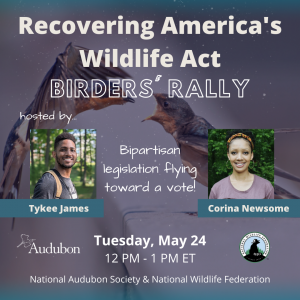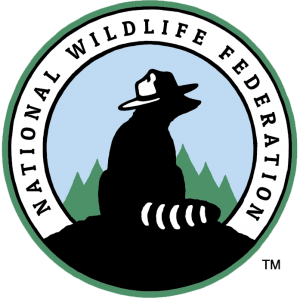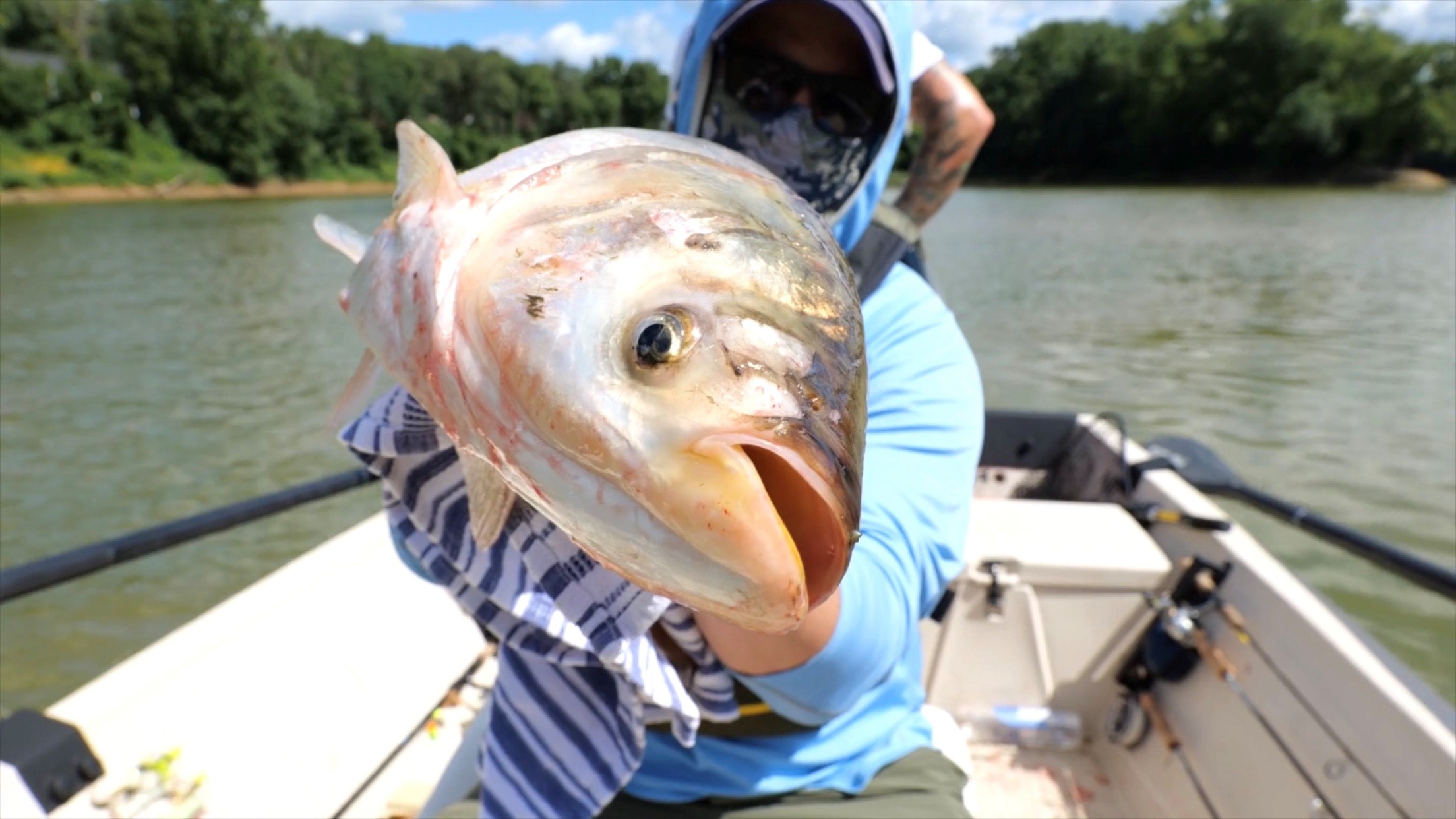To sign your conservation club onto this regional letter, please send an email to National Wildlife Federation’s Marc Smith before Feb 25, 2019. msmith@nwf.org, Marc Smith, Director of Conservation Partnerships, National Wildlife Federation, 734-887-7116
SIGN UP FOR IWF’s ASIAN CARP EMAIL UPDATES HERE
(UPDATE 1/4/19) Please be informed that the Army Corps of Engineers has extended the comment deadline for Brandon Road by 60 days to Feb. 25, 2019. Due to the government shutdown, this extension is not yet reflected on the federal register, but is expected to be announced soon.
***Begin Letter***
December XX, 2018
Andrew Leichty PMP
Project Manager
U.S. Army Corps of Engineers, Rock Island District
ATTN: GLMRIS-Brandon Road EIS
Clock Tower Building
P.O. Box 2004
Rock Island, IL 61204-2004
Dear Andrew,
Please accept these comments submitted on behalf of the undersigned organizations as well as our hundreds of thousands of hunters, anglers, and outdoor recreation enthusiast members across the Great Lakes and Mississippi River basins and nationwide, regarding the U.S. Army Corps of Engineers’ (Corps) Final GLMRIS Brandon Road Report and EIS (GLMRIS BR Report).
The undersigned organizations appreciate the opportunity to comment. While we support the GLMRIS BR Report, we have some additional comments, which are highlighted below.
Threat
The Great Lakes are a phenomenal natural resource, a network of five inland seas that span 94,000-square miles of surface area, contain 20 percent of all surface freshwater on the planet and comprise the world’s largest freshwater ecosystem. The five lakes — Superior, Michigan, Huron, Erie and Ontario —provide drinking water for 35 million people. In addition, the Great Lakes support a $7 billion fishery; a $16 billion tourism industry; waterfowl production areas that support a hunting economy of $2.6 billion/year; and hunting, fishing, and wildlife observation that generates approximately $18 billion/year. Combined, these represent a massive outdoor economy that is an integral part of North America’s cultural and outdoor heritage.
Today, we are dealing with the worst crisis to face the Great Lakes since the colonization of the lakes by zebra and quagga mussels: the potential invasion of Asian carp. Once the invasive carp invade the lakes, there is no turning back; the damage will be done. Indeed, the urgent need for action is only amplified by the live capture of a silver carp in June 2017 just 9 miles from Lake Michigan on the Lake-side of the electrical deterrents. Just months earlier, a U.S. Geological Service report estimated that Asian carp would have ample food to survive the near-shore areas of the Great Lakes and their connected river mouth and embayment’s. Thus, risking the connecting inland streams, rivers and lakes. We have no choice; we have to take action now to stop the Great Lakes’ invasion by Asian carp. And we have to take action quickly, while there is still time to save the lakes, and the fish and wildlife that call them home.
Support of the GLMRIS BR Report
Our organizations are supportive of the GLMRIS BR Report, as this plan is the best near-term option for getting additional defenses in place to prevent Asian carp from establishing a population in Lake Michigan and our Great Lakes. This plan includes a gantlet of technologies (acoustic fish deterrent, engineered channel, electric barrier, and a flushing lock) to prevent Asian carp from moving past the lock, while maintaining navigation for shipping. In addition, we are supportive of removing the water jet measure and replacing it with an air bubble curtain.
Cost Increase
The estimated cost of the project has increased from approximately $275 million to $777.8 million. This increase is included for the expedited implementation strategy. We do understand that a large portion of this increase ($317 million and approximately 66%) is estimated as contingency costs. Given this, the actual cost of this project could be closer to $460 million. While this is a significant increase in cost, this pales in comparison to the economic risk if Asian carp invade the Great Lakes. Moreover, and as we indicated in the above section, the socio-economic impact of an Asian carp invasion is worth this increased investment.
Implementation Strategies
Given the extreme urgency and the continued threat that Asian carp pose to the Great Lakes, we encourage the Corps to proceed with the expedited strategy to implement this project.
ANS Research and Technology Development
We are glad to see the plan utilize the approach channel and lock as an opportunity to evaluate and optimize ANS controls and maximize the efficiency of the applied technologies. In addition, we are encouraged that the engineered channel provides a platform for future control technologies.
As such, we request that the Corps continue to support and utilize the most updated research on technology control options to deter and reduce the risk of invasive species transferring between the Great Lakes and Mississippi River basins. Given the urgency and high risk of Asian carp and other ANS getting into Lake Michigan, research and development on non-structural and structural control technologies must continue. Additional federal investments moving forward will help inform the Corps as it progresses with the current GLMRIS BR Report and in identifying a two-way solution either at Brandon Road Lock and Dam or at other locations throughout the CAWS.
Non-structural actions must continue
We continue to applaud the current actions from the Illinois Department of Natural Resources, U.S. Fish and Wildlife Service, U.S. Geological Service, and other state and federal agencies in utilizing and deploying aggressive harvest activities along the Des Plaines River and other areas in the CAWS in order to ‘fish down’ the population of Asian carp below the Brandon Road Lock and Dam. We are encouraged to see in this plan that non-structural actions will continue under the jurisdiction of the U.S. Fish and Wildlife Service. This continued action will help reduce the leading edge populations of Asian carp adjacent to the Brandon Road Lock and Dam.
Conclusion
In conclusion, our organizations thank the Corps for the opportunity to submit comments. Preventing Asian carp and other invasive species from transferring between the Great Lakes and Mississippi River is an urgent matter that demands immediate action. We thank the Corps for its efforts in studying ways to address this critical situation. We encourage you to consider our comments and move as fast and efficiently as possible to finalize this plan and submit to Congress on schedule. We need stronger controls in place now in order to prevent Asian carp and other invasive species from continuing to swim closer to – and eventually into – the Great Lakes. Without firm and swift action to stop the further movement of Asian carp and other invasive species, the future of hunting, fishing and our outdoor heritage in the Great Lakes and Mississippi River region is at risk.
Sincerely,
| American Sportfishing Association
Anglers of the Au Sable
Antigo Chapter Trout Unlimited (WI) |
| Austin Chapter 10 of the Izaak Walton League of America |
| Backcountry Hunters and Anglers
Bass Anglers Sportsman Society (B.A.S.S.)
The Bass Federation of Michigan |
| Bush Lake Chapter Izaak Walton League of America |
| Cass County Chapter of the Minnesota Izaak Walton League of America |
| Columbiana County Federation of Conservation Clubs (OH)
Congressional Sportsmen’s Foundation |
| Conservation Federation of Missouri |
| Ducks Unlimited
Dwight Lydell Chapter of the Izaak Walton League of America
Fly Fishers International
Fishing League Worldwide
Great Lakes Council of Fly Fishers International |
| Hoosier Coho Club
Illinois Council of Trout Unlimited
Illinois Division of the Izaak Walton League of America
Indiana Division of the Izaak Walton League of America
Indiana Sportsmen Roundtable |
| Indiana Wildlife Federation |
| Iowa Wildlife Federation |
| Izaak Walton League of America |
| Lake Erie Charter Boat Association
Marine Retailers of the Americas
Michigan B.A.S.S. Nation |
| Michigan Chapter, Backcountry Hunters and Anglers |
| Michigan Steelhead and Salmon Fishermen’s Association |
| Michigan Trout Unlimited |
| Michigan United Conservation Clubs
Minnesota B.A.S.S. Nation |
| Minnesota Chapter, Backcountry Hunters and Anglers |
| Minnesota Conservation Federation |
| Minnesota Division Izaak Walton League of America |
| Minnesota Trout Unlimited |
| Montmorency County Conservation Club (MI)
National Marine Manufactures Association
National Professional Anglers Association
National Wildlife Federation
New Alsace Conservation Club (Indiana)
New York B.A.S.S. Nation
New York Trout Unlimited |
| Northwest Indiana Steelheaders
Northwest Sportfishing Industry Association
Ohio B.A.S.S. Nation
Ohio Chapter, Backcountry Hunters and Anglers |
| Ohio Conservation Federation |
| Ohio Council of Trout Unlimited
Ontario B.A.S.S. Nation |
| Owatana Chapter of Izaak Walton League of American (MN)
Pennsylvania B.A.S.S. Nation |
| Pennsylvania Council of Trout Unlimited |
| Silvertip Productions (Ohio) |
| Trout Unlimited |
| United Northern Sportsmen (Minnesota)
W.J. McCabe (Duluth) Chapter of the Izaak Walton League of America |
| Wabasha Chapter, MN Division, Izaak Walton League of America |
| Wild Rivers Chapter, Trout Unlimited (WI)
Wisconsin B.A.S.S. Nation |
| Wisconsin Chapter, Backcountry Hunters and Anglers
Wisconsin Division of the Izaak Walton League of America
Wisconsin Federation of Great Lakes Sport Fishing Clubs |
| Wisconsin Trout Unlimited |
| Wisconsin Wildlife Federation |



